Jagantmata Bhojonalaya, century-old Odiya pice-hotel of Kolkata
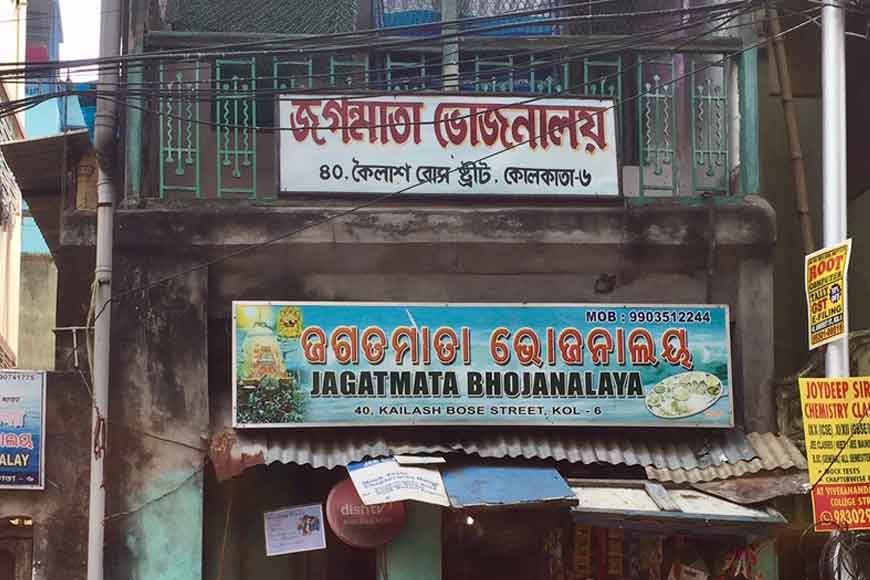
Alokeparna Ghosh is a food writer and a non-profit consultant
Honestly, I am not a summer-friendly person at all. I avoid all kind of outdoor or non-AC activities including food adventures during the very inconveniently long summers of Kolkata. But pice hotels have always attracted me. I had been hearing about them for some time now and never had the chance to visit one. So, when a lunch opportunity at one such place opened up with fellow foodies, I couldn’t resist.
The 120 plus year old Oriya establishment of North Kolkata, Jagantmata Bhojonalaya was my food stop. For the uninitiated, pice hotels were the nutrition replenishment centres for thousands of students and office babus who stayed in Kolkata’s mess baris (shared homes) away from their hometowns. These hotels had a thriving business a century back because of their home-styled Bengali food. They helped homesick sons get their daily nutrition in exchange of a few paise (pice). Jaganmata was set up by Bikol Chandra Das who hailed from Odisha. Today it is run by third generation family member Gangadhar Mishra.
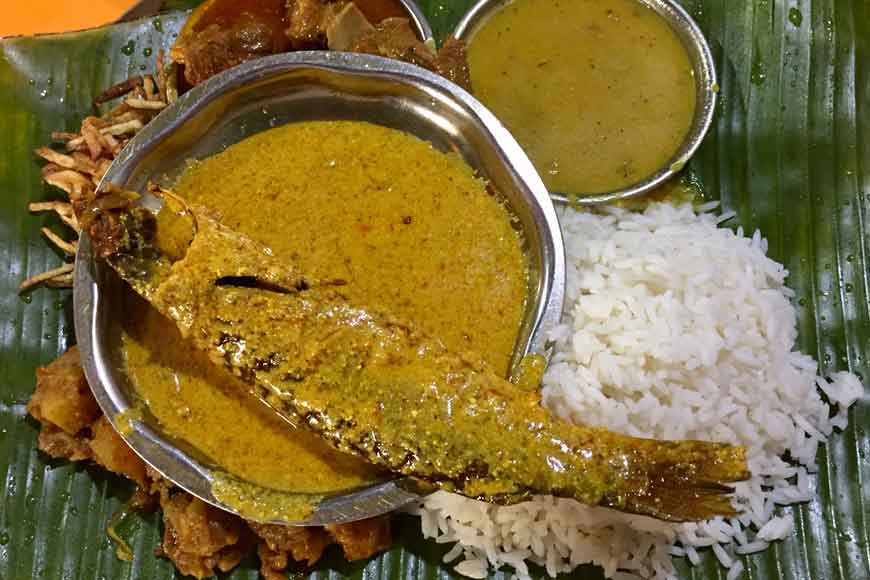
There were two signboards on the façade of the dilapidated ancient building- the Bengali signage claimed it was Jaganmata while the English name was Jagatmata. Since Jaganmata makes sense grammatically, I am going to stick to it. The entrance to the eatery was through a narrow alley on the left side of the building. Inside, there were two small (and rather ill-maintained) rooms – one had arrangement to sit on the floor while the other had basic chairs and tables. The rooms with high ceilings adorned with korikath (wooden planks supporting the roof) reminded me of my ancestral house. For centuries, Bengali writers, poets and filmmakers have romanticised korikath.
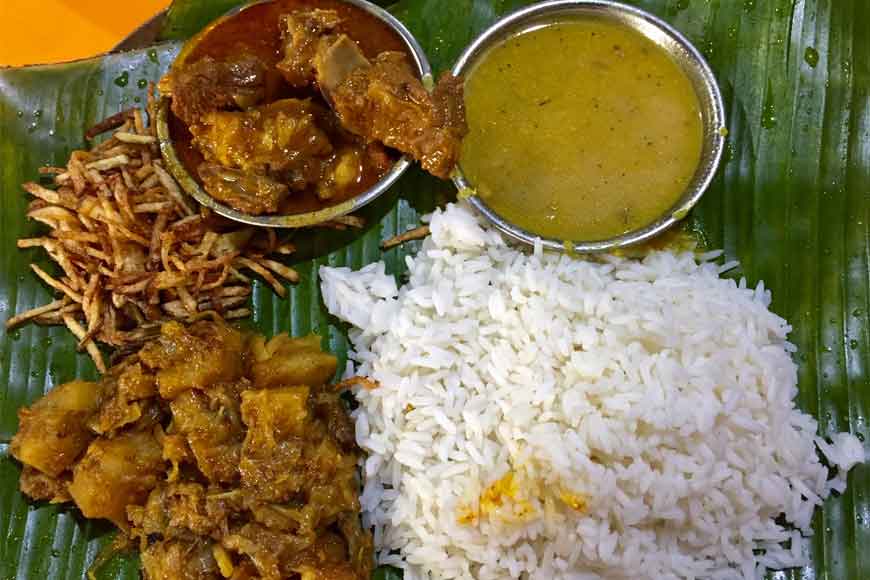
Running successfully since pre-independence era, this tiny ‘bhaater hotel’ is a great social leveller. Here hip and posh happily shares a table with a cabbie or a labourer. Fresh ingredients are cooked with hand ground spices and on wood ‘n’ coal stove. Result are sumptuous meals that leave you licking your fingers. Well, you have to lick them anyway because you eat here with your fingers, on a banana leaf that has been laid on a heavy as hell Kansha (bell metal) plate. Water is served in bhaanr (Earthen cup).
A large red board on the wall announces the menu. Everything is priced separately, even the banana leaf. The prices were of the bygone era and you would have to try real hard to cross Rs 250 for a meal. Do not expect a bill and remain prepared to pay by cash. Varieties of fish are made available daily as per the local market’s offerings of the day– Pabda, Tyangra, Pomfret, Tilapia, Koi, Bhetki, Ilish (during monsoons), Rohu, Katla, Parshe and more. You will also get goat meat and crabs. However, keeping the traditions alive, it has no poultry and no meat on Thursdays.
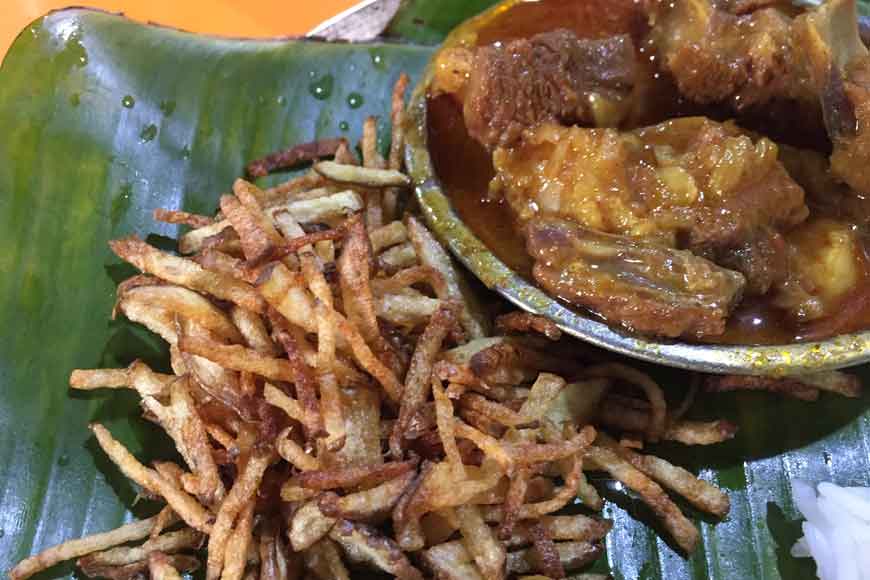
I had rice, lentils, potato fries, cabbage with fish head, Parshe (Mullet-fresh water fish) and goat meat curry. The jhurjhure aloo bhaja was reminiscent of Bengali biye bari bhoj (wedding feasts) of my childhood. Crispy and matchstick thin slices of potatoes deep fried with just the right quantity of salt. Ideal partner to the simple non-spicy daal. The duo worked better with a dash of lime and occasional bites of raw onions. I was glad that I had ordered the Parshe. It was a big and super fresh fish that was a bit over-fried (just the way I like) before cooking it with a thick pungent mustard paste. The fleshy fish was just too delicious and I finished a large quantity of rice with it. A very strange incident as I neither like fish nor rice. The goat meat curry was again a simple non-spicy affair. It was the typical panthar jhol that usually completed every Bengali’s Sunday lunch. There was tomato chutney too and it served as a good palate cleanser cum dessert as no mishti (sweets) was available.
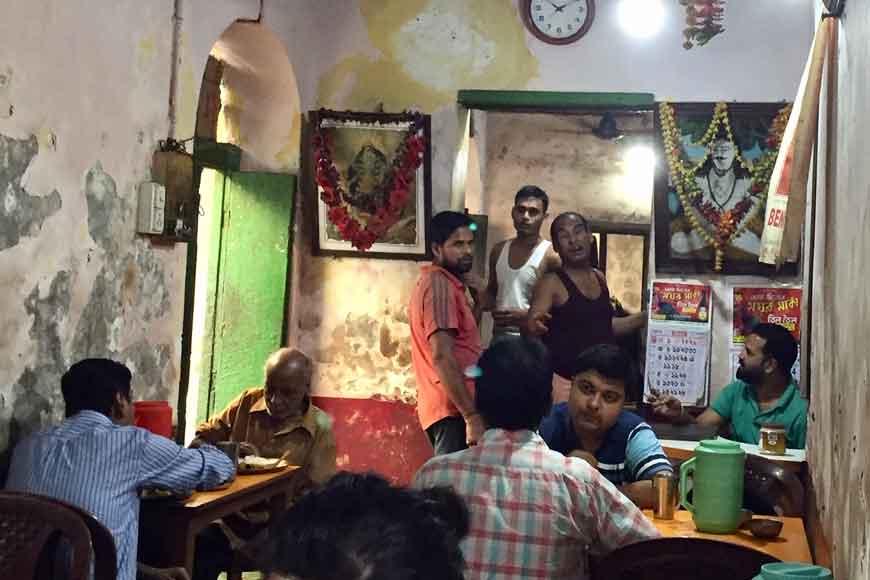
Meat is surely a very popular item and it gets over pretty fast. One of my friends had arrived late and she did not get any. The servers were seasoned and could easily distinguish between who had come to fill stomach and who were tourists. The latter would be offered kolapata on plates and help with selecting food. They were also well practised in ‘calling’ which was passing on order to the kitchen by shouting the food items. You may ask for repeats, though that too will be priced separately. The person who is at the cash point do not keep track of orders and the server tells him the bill amount of each customer.
Before ending must mention the cute little well and the tiny iron bucket that was kept outside for hand washing. If you wish to try a pice hotel of Kolkata, then do drop in at 40 Kailash Bose Street, Simla, near Vivekananda Road and Bidhan Sarani Crossing.









